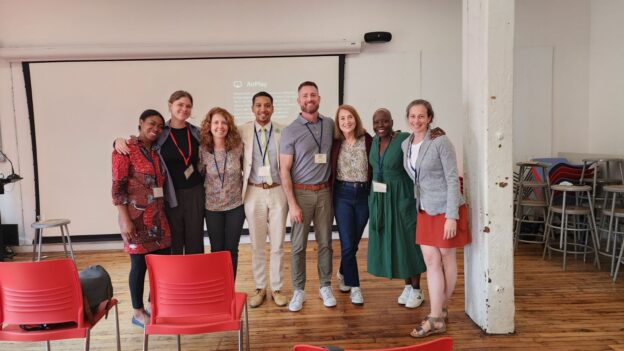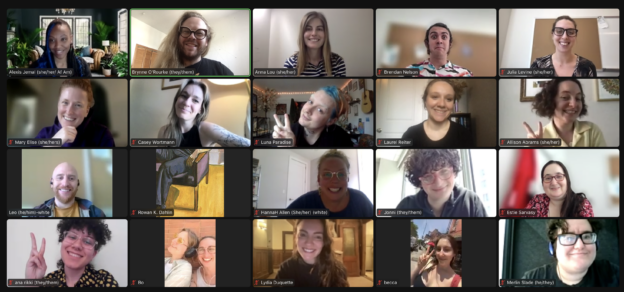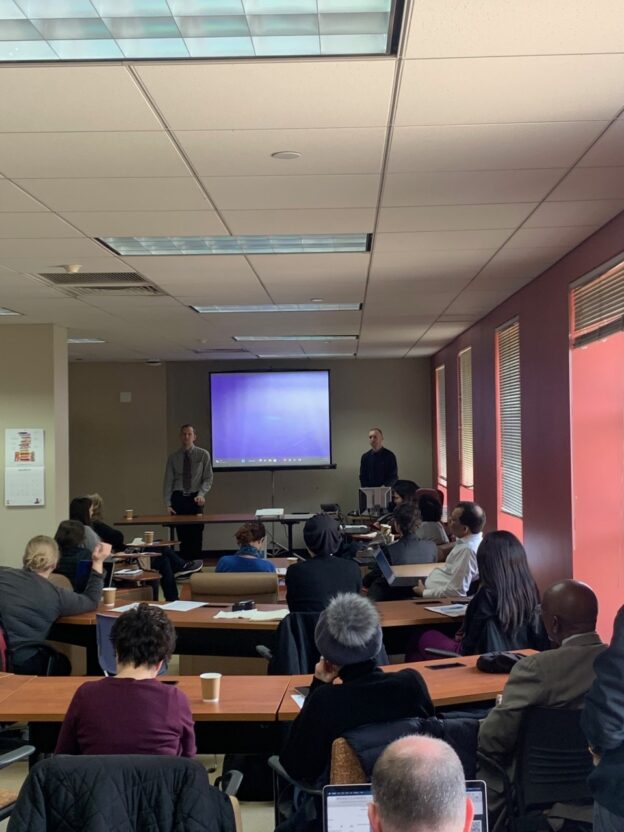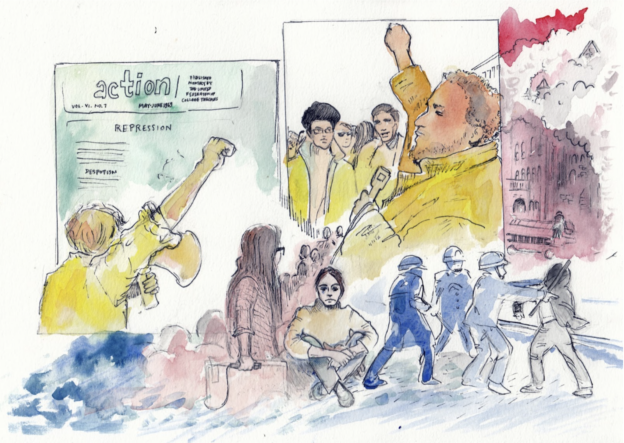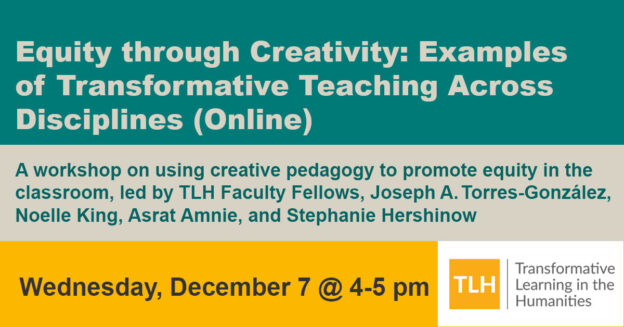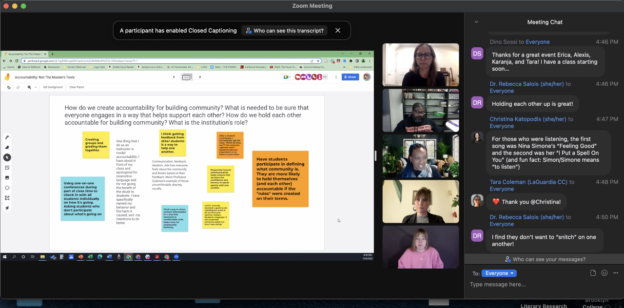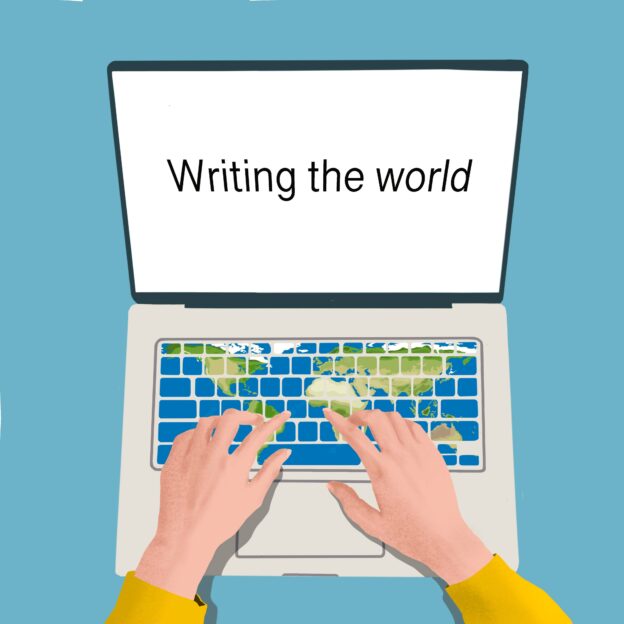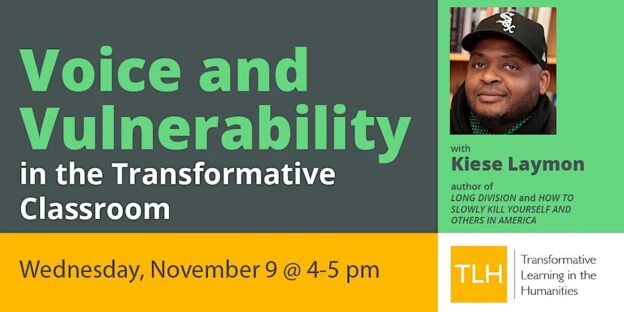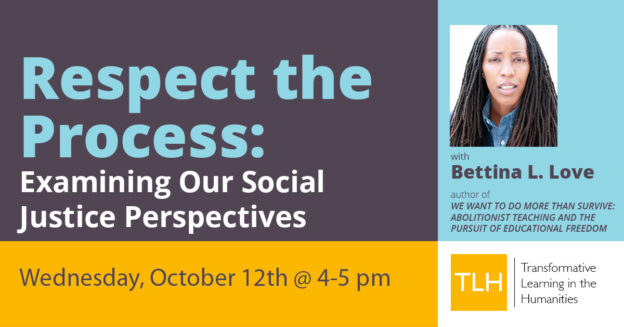The TLH team presented at 4 conferences in the 2022-2023 academic year. In November 2022, Shelly, Cathy, Christina, Jessica, Javiela and Jason had presented “Radical Tools, Radical Pedagogy: An Interactive Workshop on Teaching to Transform” at the American Studies Association (ASA) Annual Meeting. There, TLH members were inspired by the personalized introductions in the authors session “Insurgent Black Feminist Poetics,” chaired by Kara Keeling and including Sarah Cervenak, Erica Edwards, Kevin Quashie, Mecca Jamilah Sullivan, LaMonda Horton-Stallings, Courtney Thorsson, comment by GerShun Avilez. Instead of each presenting their own book, the authors in this session presented reviews of one another’s books—and what made the session shine was hearing what each colleague loved most about one of their colleagues’ books. This transformed each conference presentation from an egotistical or defensive maneuver into an act of admiration and support for another colleague’s work. And the audience listened with deep interest, resulting in a robust and productive Q&A session.
At the subsequent TLH presentations at the DEI, AERA, and HASTAC conferences, the team incorporated a new method derived from this transformative model. Instead of having the panel chair introduce everyone by reading their bios in a long monologue at the beginning of the session, each TLH panelist introduced another. Instead of focusing on accomplishments and publications, they shared one thing they’ve learned from their co-presenter. While key biographical histories and publications were briefly mentioned, because these details can be found online and are the traditional focus, the TLH team found the personal and relational introduction more compelling and representative of the relationships built throughout the initiative. For example, at AERA Christina shared she has learned from Grace H. to leave more space for all voices, stopping after every item in a meeting to ensure everyone has had a chance to review, reflect, and share if desired. At HASTAC, Shelly shared how supported she feels by Christina, knowing the phrase “I got you” actually always rings true when coming from her. These introductions start our presentations with a strong sense of connection, an illustration for the audience that the team truly cares for one another and thus also demonstrating the content of the presentations, a transformative and loving pedagogy.
We’ve found that this method transforms a room into a site of community-building, inviting the audience into the positive energy we have as co-panelists who respect and admire one another’s work. We encourage others to integrate this method in their own way at future presentations, workshops, and talks.
TLH Presentations:
- In November 2022 Shelly, Cathy, Christina, Jessica, Javiela and Jason presented “Radical Tools, Radical Pedagogy: An Interactive Workshop on Teaching to Transform” at the American Studies Association (ASA) Annual Meeting themed The Roof is on Fire held in New Orleans, Louisiana
- In March 2023 Christina, Khanh, Jessica, Matt and Shelly presented “Prioritizing Learning: Transforming CUNY from the Classroom Up” at CUNY’s Inclusion, Diversity, Equity and Access Conference (DEI) themed The Illusion of Inclusion: Collaborative Solutions for Performative Diversity held at the CUNY Graduate Center
- In April 2023 Grace H., Grace P., Christina, Shelly, Matt, Jessica, and Virginia presented “Practicing Equity Through Active Learning: An Interactive Symposium on Transforming the Higher Education Classroom” at the American Educational Research Association (AERA) Annual Meeting held in Chicago
- In June 2023 Grace H., Christina, Jason, Javiela, Jessica, Shelly, and Matt presented “Critical Pedagogy and Social Justice” at the Humanities, Arts, Science, and Technology Alliance and Collaboratory (HASTAC) themed Critical Making & Social Justice held at Pratt Institute in Brooklyn
